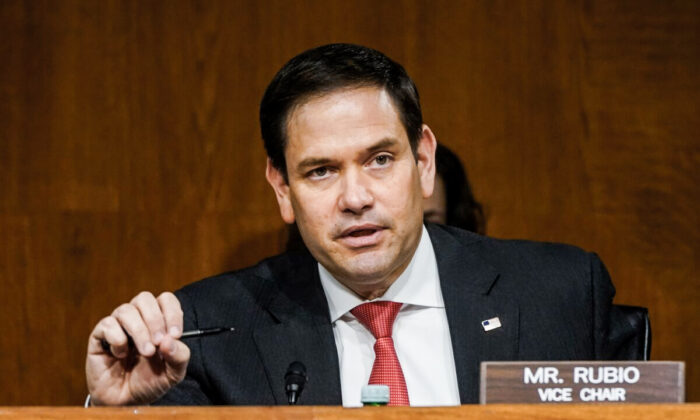Senator Rubio Calls on UK to Probe Shein’s London IPO Proposal
Sen. Marco Rubio (R-Fla.) is urging the UK Chancellor to fully investigate Chinese fast-fashion company Shein before allowing it to be listed on the London Stock Exchange.
“Slave labor, sweatshops, and trade tricks are the dirty secrets behind Shein’s success,” Mr. Rubio wrote. “I trust you will treat these allegations against Shein with the utmost seriousness, investigate them fully, and take appropriate action to protect investors.”
Shein is a fast-fashion online retailer that directly ships products to customers at significantly low prices. It relies on thousands of suppliers in the textile hub of China’s Guangdong Province.
Tariff Loopholes
The committee said Shein and another Chinese fast fashion retailer, Temu, likely represented over 30 percent of all de minimis shipments to the United States in 2022. The investigation also found that nearly half of all shipments to the United States under the de minimis provision likely originated from China.
Shein also benefits from European Union tariff rules that allow customers to order parcels worth less than 150 euros (about $170) from overseas online retailers without paying import tax.
“The United States and the United Kingdom have many honest businesses that employ workers, import clothing from reputable manufacturers, and pay taxes accordingly. Shein’s dishonest business threatens honest businesses everywhere,” Mr. Rubio wrote in his letter to Mr. Hunt.
Lord Alton also said that allowing Shein to list on the London Stock Exchange would be “an endorsement of a morally questionable business model built off of the back of slave labor, data harvesting, and serving as a shop window for the Chinese Communist Party.”
Forced Labor Allegations
In 2021, the United States banned cotton importation from Xinjiang due to “horrific abuses” against the Uyghurs and other ethnic minorities in the region. The ban applied to all products manufactured in Xinjiang since June 2022 under the Uyghur Forced Labor Prevention Act (UFLPA).
Congress enacted the UFLPA in 2021 in response to mass forced labor in Xinjiang. This law ensures that goods made with forced labor in the region are restricted from entry into the United States. This law presumes that the importation of any goods manufactured in Xinjiang violates section 304 of the Tariff Act of 1930, which prohibits the importation of products made with forced labor.
Shein told The Epoch Times that it “has a zero-tolerance policy for forced labor. We require our contract manufacturers to only source cotton from approved regions. We take visibility across our entire supply chain seriously, and we are committed to respecting human rights.”
The Chinese communist regime has established a vast network of mass internment camps, where at least 1 million Uyghurs are unlawfully detained, according to rights groups.
Mary Man contributed to this report.



